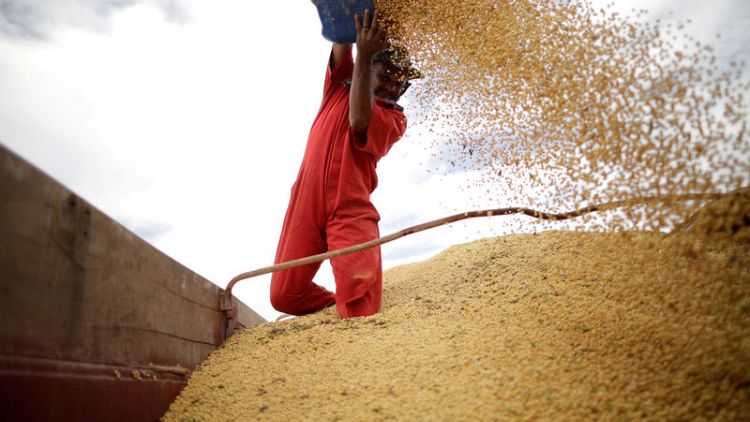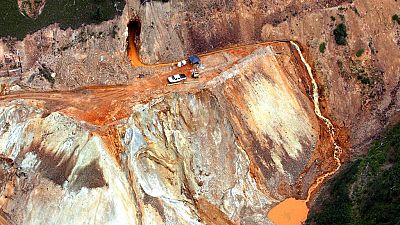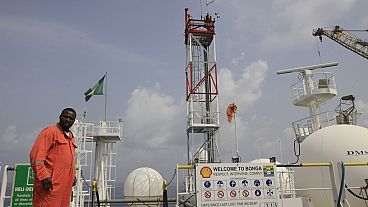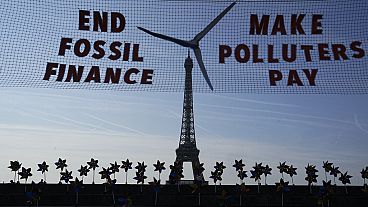By Roberto Samora
SAO PAULO (Reuters) - Brazilian farmers risk losing part of the European market for soy products estimated at $5 billion (3.88 billion pounds) per year if they scrap a so-called soy moratorium barring grain traders from buying oilseed from areas in the Amazon that have been deforested.
"This farmers' movement can be perceived as a challenge," Nathalie Lecocq, director general of FEDIOL, the group representing the European Union vegetable oil and meal industry told Reuters.
Aprosoja, the main group representing Brazilian soy growers, wants to end the moratorium, which applies to land in the Amazon that was cleared after 2008.
Brazil's Abiove, the association representing soy traders and crushers, wants to keep the moratorium. It said Europe bought around $5 billion in soybeans and soymeal from Brazil in 2018.
"This market could be put at risk if the Amazon Soy Moratorium was questioned or suspended," said Lecocq.
"The European market, driven by consumer concerns relative to climate change, is increasingly demanding products that are free from embedded deforestation," she said.
Aprosoja has decided to oppose the moratorium because it says landowners in the Amazon region are entitled by Brazil's Forest Code to clear up to 20% of the land for agricultural activities.
Farmers' move to end the policy found support in the Brazilian government. Agriculture Minister Tereza Cristina described the moratorium as "absurd".
Bartolomeu Braz Pereira, head of Aprosoja, said the moratorium is not in accordance with national legislation that allows some agricultural activities in the Amazon. He said farmers will seek a favourable ruling by CADE, Brazil's agency that oversees market competition.
Asked if farmers fear a backlash from European buyers, he said: "From where they are going to buy soy if not from Brazil? Mars? From the moon?".
André Nassar, head of Abiove, has a different opinion. He does see a risk of Brazil losing market share and cites growing imports by Europe from the United States and Argentina in 2018 when Brazil was selling almost all of its soy to China.
Lecocq said that recent data showing an increase in deforestation will only push EU consumers further in their rejection of products.
"It is likely to spur policy-makers to take measures preventing goods associated to deforestation to enter the EU market," she said.
($1 = 0.9073 euros)
(Reporting by Roberto Samora, writing by Marcelo Teixeira; editing by Grant McCool)



